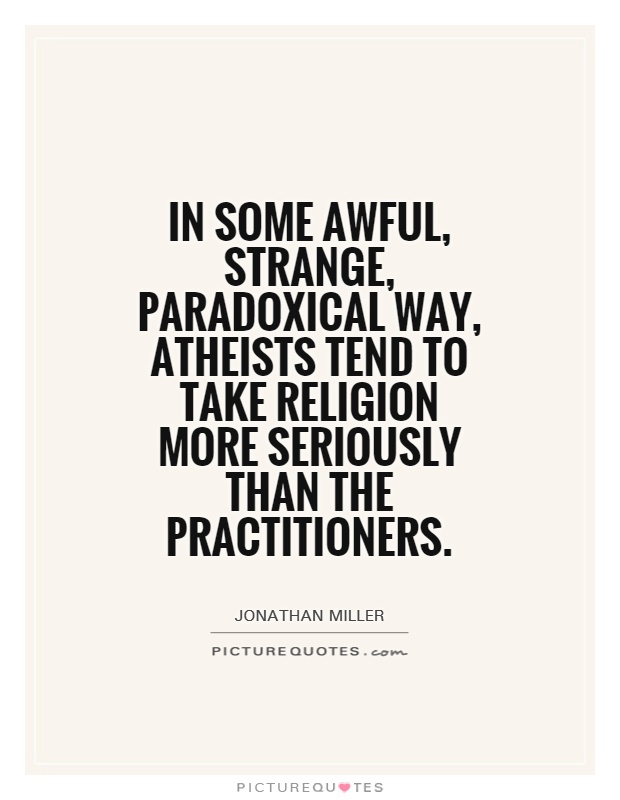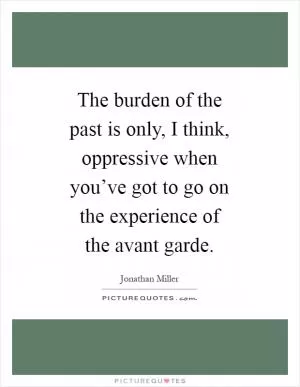In some awful, strange, paradoxical way, atheists tend to take religion more seriously than the practitioners

In some awful, strange, paradoxical way, atheists tend to take religion more seriously than the practitioners
Jonathan Miller, the renowned British actor, director, and writer, was known for his outspoken atheism and skepticism towards organized religion. He often criticized religious beliefs and practices, arguing that they were based on superstition and irrationality. However, despite his rejection of religion, Miller's views on the subject were complex and nuanced. In some ways, he seemed to take religion more seriously than many of its practitioners.One of the reasons for this paradoxical attitude towards religion was Miller's deep intellectual curiosity and his commitment to understanding the human experience. He was fascinated by the history of religion, its cultural significance, and its impact on society. In his work as a director and writer, he often explored religious themes and motifs, drawing on the rich symbolism and mythology of various faith traditions. His productions of classic plays like "The Crucible" and "The Merchant of Venice" were marked by a deep engagement with religious themes and questions.
Moreover, Miller's atheism was not a simplistic rejection of all religious beliefs. He acknowledged the power of religion to provide comfort, meaning, and community to its followers. He recognized that for many people, religion was a source of solace and inspiration in the face of life's uncertainties and challenges. In this sense, he respected the emotional and psychological significance of religion, even as he remained critical of its intellectual and moral claims.
Miller's attitude towards religion can be seen as a reflection of his broader humanism and commitment to intellectual honesty. He was not content to dismiss religion as mere superstition or delusion. Instead, he engaged with religious ideas and practices in a serious and thoughtful way, grappling with their complexities and contradictions. In doing so, he challenged both believers and non-believers to confront the deeper questions and mysteries of existence.












 Friendship Quotes
Friendship Quotes Love Quotes
Love Quotes Life Quotes
Life Quotes Funny Quotes
Funny Quotes Motivational Quotes
Motivational Quotes Inspirational Quotes
Inspirational Quotes